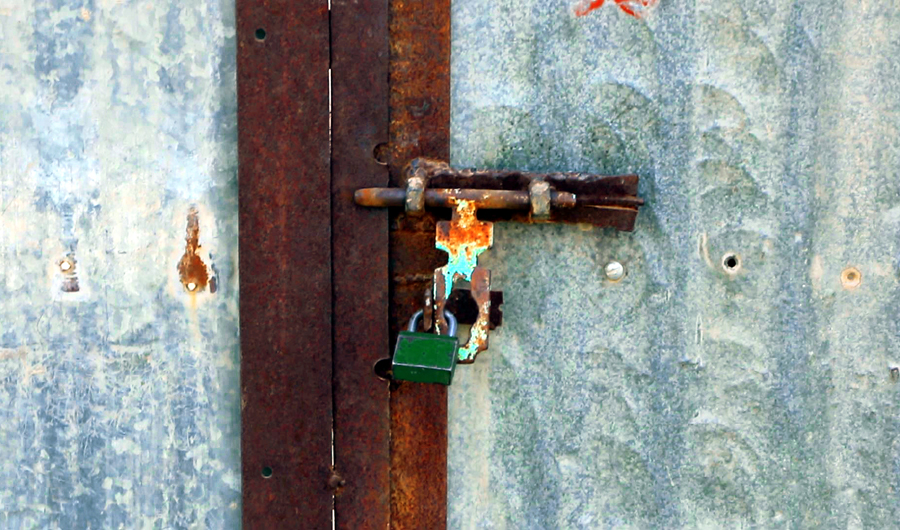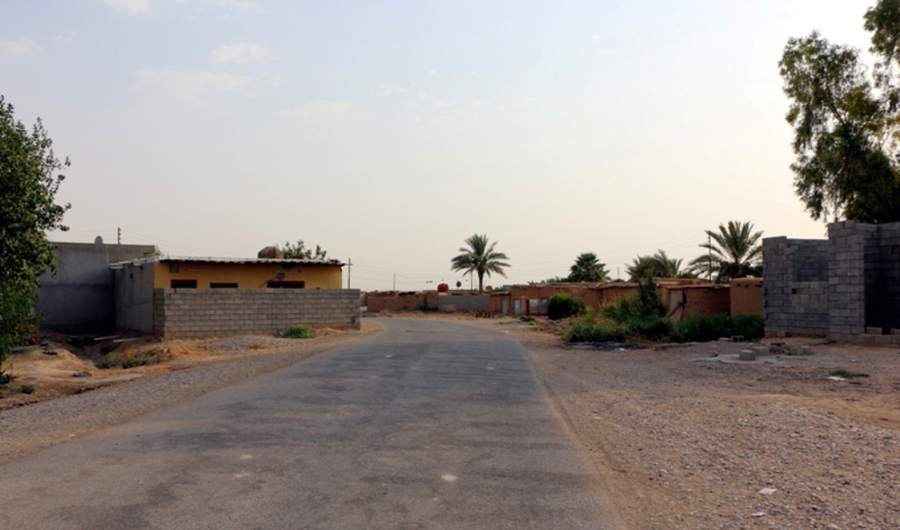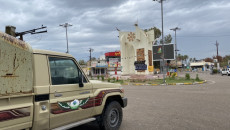In the past four years, at least 24 villages in Khanaqin district of Diyala province have been evacuated by its Kurdish residents, deserting dozens of farms and orchards.
According to local residents, the main reason for the evacuation of the villages was the security situation and lack of confidence in the Iraqi Security Forces ISF to protect them from the hands of the extremist militants of the Islamic State of Iraq and the Levant ISIL.
Rizgar Hamwandi, the chief of the Hamwand tribe in Khanaqin, said that the displacement of the residents of these villages began in 2018, after a series of attacks by ISIL on the villagers and kidnapping and killing of villagers.
"Some other villages are still being evacuated from time to time," Hamwandi said.
The evacuation came after a series of attacks on Mardan village in 2018 by IS militants whom killed five villagers, all close relatives of Hmawanidi.
Hamwandi, one of the residents of Mardan village, said the attacks continued from time to time, causing the villagers to fear for their lives and gradually leave their villages.
The occasional attacks on the villages continued, causing the villagers to fear for their lives and gradually evacuate their villages
According to the committee for outside the KRG territories under the Kurdistan Regional Government (KRG), about 24 Kurdish villages in Khanaqin district of Diyala province have been evacuated as of November this year.
Rawa Samir, director of the Kurdish areas outside the Kurdistan Regional Government (KRG) office in Khanaqin, told KirkukNow that some of the people of several other villages have left their villages, while they owned farms and livestock.
"In the past four years, about 5,000 Kurdish families have left their homes for Khanaqin or other cities in the (Iraqi) Kurdistan Region (IKR)," he said.
Khanaqin District, home to 90,000 Kurds, Arabs and Turkmens, Sunnis and Shias, is part of Diyala province and is one of the disputed territories which extends from Khanaqin, on the border with Iran, to the northern oil-rich city of Kirkuk up to Shingal (Sinjar), home to the Ezidi community, in Mosul, in the far west, on Iraq-Syria borders.
Article 140 of the Iraqi constitution stipulates normalization, a population census and a referendum on the status of the territories, yet it has not been materialized up the preset, leaving the area in security gap, missing basic public services.
Most of the disputed territories were under control of the Kurdish Peshmerga forces up to October 2017, when the ISF took over control of these territories following the defeat of ISIS.
Unlike Kirkuk and other disputed areas, the KRG Peshmerga forces, the police, and the Asayish (Kurdish security) returned and were stationed in Khanaqin to safeguard some offices affiliated KRG in the district.

According to Samir, the main reason for the deterioration of the security situation in the villages is due to the events of October 2017, when Iraqi forces returned to all the disputed areas, which were under the control of the KRG.
Families who have left their villages are not considered refugees by the Migration and Displacement Office of the Iraqi government.
"I saw 15 houses in the village completely destroyed and about eight farms with all trees cut down and destroyed," said Hamwandi, who now lives in Khanaqin.
"They security forces told me Daesh uses the houses and farms as hideouts," he said.
They security forces told me Daesh uses the houses and farms as hideouts
The Iraqi army is responsible for protecting the area around Khanaqin within the framework of the Joint Operations Command in Diyala.
According to KirkukNow follow ups, the security situation in the villages has improved this year compared to the previous year, pushing the army to urge villagers to return to their homes.
"It is true that they asked us to return and said they would protect us, but we do not trust them," Hamwandi added.
"Another reason why people have not returned is that their houses have been demolished and their farms have been destroyed," he elaborated.
Local Iraqi and Kurdish officials affirmed KirkukNow last August the coordination between the Iraqi army and the Peshmerga forces in Khanaqin is considered the main reason for restoring security and stability, after several years of separation, due to post-referendum conflicts and the events of October 16, 2017, which caused the Peshmerga to withdraw from Khanaqin and the disputed territories between Baghdad and Erbil.
A joint center of the army and Peshmerga has been established in Khanaqin and several other disputed areas for military coordination to track the remnants of the Islamic State of Iraq and Syria ISIS.
"I can say that the security situation in the villages is more stable and the villages are more secure. There is less security gap, but the villagers do not trust that their lives are protected," a source in Khanaqin district administration anonymously told KirkukNow.
"If any village is rebuilt, we promise to provide them with basic services such as water, electricity and other necessities,” the local official added.






